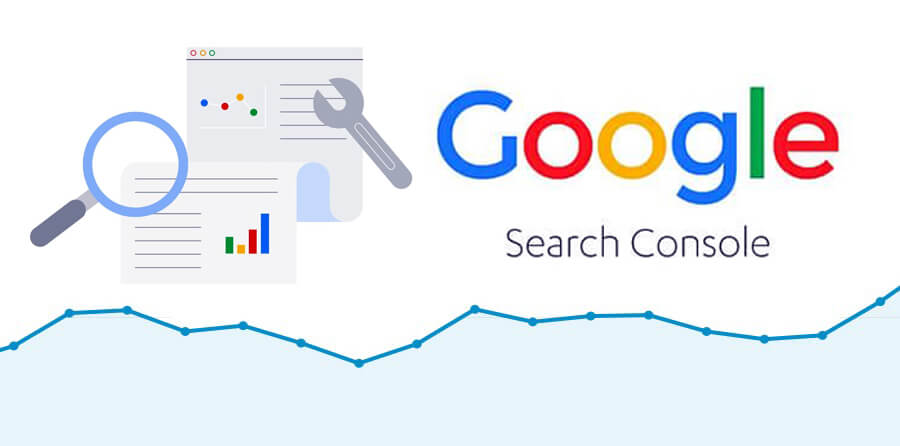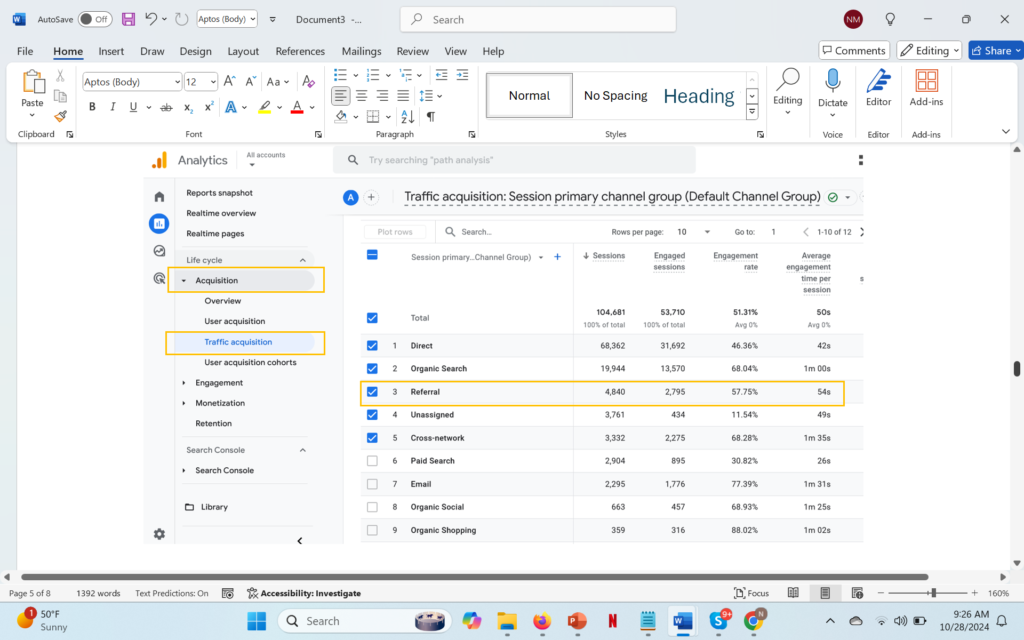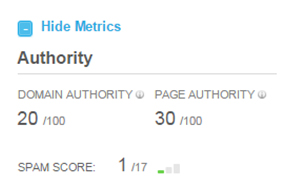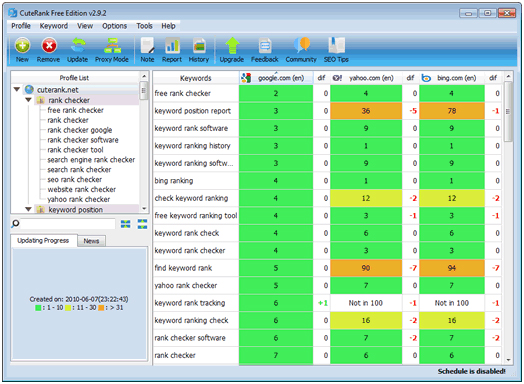How Do You Know Your SEO is Working?
How to know if SEO is working is a question often asked, especially because SEO results doesn’t show up right away. Search engine optimization (SEO) when done correctly is an investment that continues to pay dividends, and who doesn’t love getting more than they invested? However, SEO does take time to produce results. In this blog post, we dive into the key metrics that you must track to know if your SEO is working. Some metrics you will be able to start measuring right away, while others may take a bit longer to show, but with consistent effort and a solid strategy your SEO should begin to produce results.
How long does SEO Take?
It really depends on how competitive your keywords and overall market is. A realistic SEO results time frame is usually 3 to 6 months; however, if you’re in a highly competitive market it can take as much as a year. Many businesses take a long-term approach to SEO because they know the value and the potential for getting a high return on investment. When SEO works, you can expect to see an increase in traffic, leads and sales on a more consistent basis.
How Do You Know Your SEO Is Working?
To know if your SEO is working there are several key SEO performance metrics that you must track such as:
1. Organic Search Impressions
Organic search impressions measure how often your website appears in search results, even if users don’t click.
Impressions are an early indicator of visibility, showing that your content is gaining exposure as it begins ranking for relevant keywords. Impressions are a good place to start because when you start optimizing for keywords, you won’t land on the first page right away in most cases. You will most likely start on lower pages, so although you may show up in searches, you’re less likely to get clicked on. The most important thing is that you know you have begun to rank for those keywords, and then you can continue your efforts to get to the first page. You can check your organic impressions through Google Search Console:
- Login to Google.com/webmasters
- Select the website you wish to check
- Click on Search Traffic and then Search Analytics
- Check the Impressions box (this shows data for the last 28-90 days).
- Benchmark these numbers at the start of your SEO project to track progress.

You can even compare periods to see if there’s an uptick. If you have an increase in your organic search impressions, that’s a very good indicator that your SEO is working.
2. Organic Search Traffic: Direct Visits from Search Engines
Organic search traffic reflects the number of users visiting your website from search engine results without any paid ads.
A steady increase in organic traffic is one of the most reliable indicators that your SEO efforts are driving more visitors to your site.
While rankings are valuable, your ultimate goal is to increase traffic and sales. Therefore, an increase in organic traffic is a strong sign that your SEO is performing well. Focus specifically on organic traffic to see the true impact of SEO, as other activities outside of SEO may affect overall traffic. Compare year-over-year data to gauge SEO success accurately. To view your organic traffic via Google Analytics:
- Login to your Google Analytics account
- Go to Acquisition > Traffic Acquisition
- Review Organic Search Traffic
3. Number of Pages Ranking
The pages ranking metric shows how many of your web pages are ranking in search engine results for relevant keywords.
More pages ranking means your SEO is successfully optimizing multiple areas of your site, making it easier for users to discover your content.
An increase in the number of ranking pages indicates SEO success. A decrease, however, could signal issues like penalties or indexing errors. If pages aren’t indexed, search engines can’t crawl your site effectively. You can track the number of pages you’re ranking for in Google Search Console by following the steps above for impressions and selecting Pages.

4. Number of Backlinks
Backlinks are links from other websites that point to your content. They serve as votes of credibility, signaling to search engines that your content is valuable and worth sharing.
High-quality backlinks are essential for building authority.
Link-building is essential for SEO. If your SEO strategy is effective, you’ll see an increase in quality backlinks. Monitor both the number and quality of backlinks, as low-quality links can hurt your SEO. Use tools like Majestic SEO or Ahrefs for tracking and scoring link quality
An easy way to monitor your backlinks is to go to www.opensiteexplorer.org
- Enter your website address
- Review your established links
- Total links refers to the number of backlinks you currently have
- Root domains means the number of individual websites that are linking back to you

Again, it’s important to benchmark these metrics at the start of your SEO project so that you can track your progress.
5. Referrals Traffic
Referral traffic measures the visitors who land on your website from links on other sites. It shows how effective your off-site SEO efforts are, especially when links come from relevant and reputable sources.
If you are following link-building best practices and you’re seeking out links from reputable, relevant websites, naturally you should see referral website traffic from those websites as well. To check referrals from other websites in Google Analytics
- Login to your Google Analytics account
- Go to Acquisition > Traffic Acquisition
- Review Organic Search Traffic

6. Domain & Page Authority
Domain Authority (DA) and Page Authority (PA) reflect the credibility and ranking strength of your site, as scored by SEO tools. Higher authority scores suggest a stronger position against competitors and a higher likelihood of ranking well.
An early indicator of how well your website stacks up against your competitors is your website’s domain authority and page authority. You’ll have a score created by Moz, an SEO software company that rates the strength of your website’s overall domain and individual web pages from 1-100 using a logarithmic scale. The higher your score the more authority your site has. A major factor of your domain and page authority is your backlink profile. Therefore, if you’re applying good on page and off page SEO, your domain authority will likely increase as well.
To track your website’s domain authority and page authority:
Go to www.opensiteexplorer.org
- Enter your website address
- Review the scores under domain authority & page authority

7. Brand Mentions
Brand mentions refer to instances where your brand name appears online without a direct link. They are indirect signals of your brand’s visibility and credibility and often increase as your brand gains popularity through effective SEO.
Good SEO should increase your company’s visibility and exposure. As you become more visible you create more awareness of your brand which should result in an increase in the amount of searches online for your company’s name as well as mentions as users research more about your company.
You can monitor brand mentions via tools such as Google Alerts.
- Go to https://www.google.com/alerts
- Enter one name at a time that you would like to monitor. E.g. your company name, product names, CEO names etc.
- Select show options to change your settings, including how often you would like to be notified
- Click create alert to get notified each time one of your names is mentioned online

8. Conversions
Conversions measure the actions you want users to take on your site, such as completing a purchase, signing up, or filling out a contact form. Tracking conversions shows how well your SEO drives meaningful engagement that contributes to your business goals.
At the center of why we invest in SEO is the results that we are hoping for: more traffic, leads and an increase in revenue. Conversions – the percentage of people that take the action that you want them to take when they arrive on your website -are the ultimate performance indicators. Are you getting more leads? Is there an increase in phone calls? Is your email contact list growing? Are you seeing an increase in sales for ecommerce websites? These metrics will not only let you know your SEO is working but it will help you determine your return on investment.
9. Rankings
Keyword rankings show where your pages appear in search results for targeted terms. This metric helps you track whether you’re moving up in visibility for important keywords, offering insight into which SEO tactics are working.
I’m listing ranking last because most businesses tend to focus too much on rankings, when the ultimate goal is to increase traffic, leads and sales. Before embarking on an SEO campaign, it’s important to check your rankings for the list of keywords that you wish to target. This will help you in the future to check your SEO results and performance by monitoring whether your rankings are going up or down or simply remaining stagnant on a weekly or monthly basis.
It’s also important to measure your ranking to determine whether you’re pursuing the right keywords. If after a 30 or 60-day period, you’re still not ranking for the keywords you’re targeting, it may be a sign that you’re targeting very competitive keywords and you need to determine whether it makes sense for you to continue to focus on those keywords. It’s a lot easier to get keywords that are already ranking to the first page.
There are many tools out there to check rankings. I use Cuterank.net. If you’re monitoring only one website at a time you can use it for free, and I find it to be pretty accurate.
Once you have downloaded this tool:
- Create a new profile for the site you would like to monitor rankings for
- Copy and paste your list of keywords or upload a text file
- Select the search engines you would like to track
- Click finish and it will run a ranking report, which you can download

As you monitor your rankings, the tool will also let you know if your keywords are increasing (+) or decreasing (–) in ranks.
In conclusion, I think a wise man once said that you can’t improve what you don’t measure.
Therefore, measuring your SEO success is critical if you are to maximize performance.
I would go so far as to say that it’s one of the key activities that determine whether a site makes it to the first page or not.
SEO takes time, but it’s also well worth the effort.